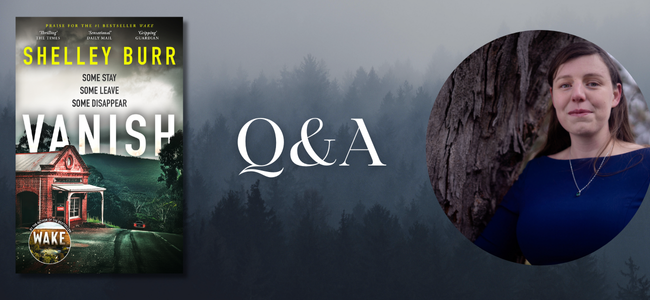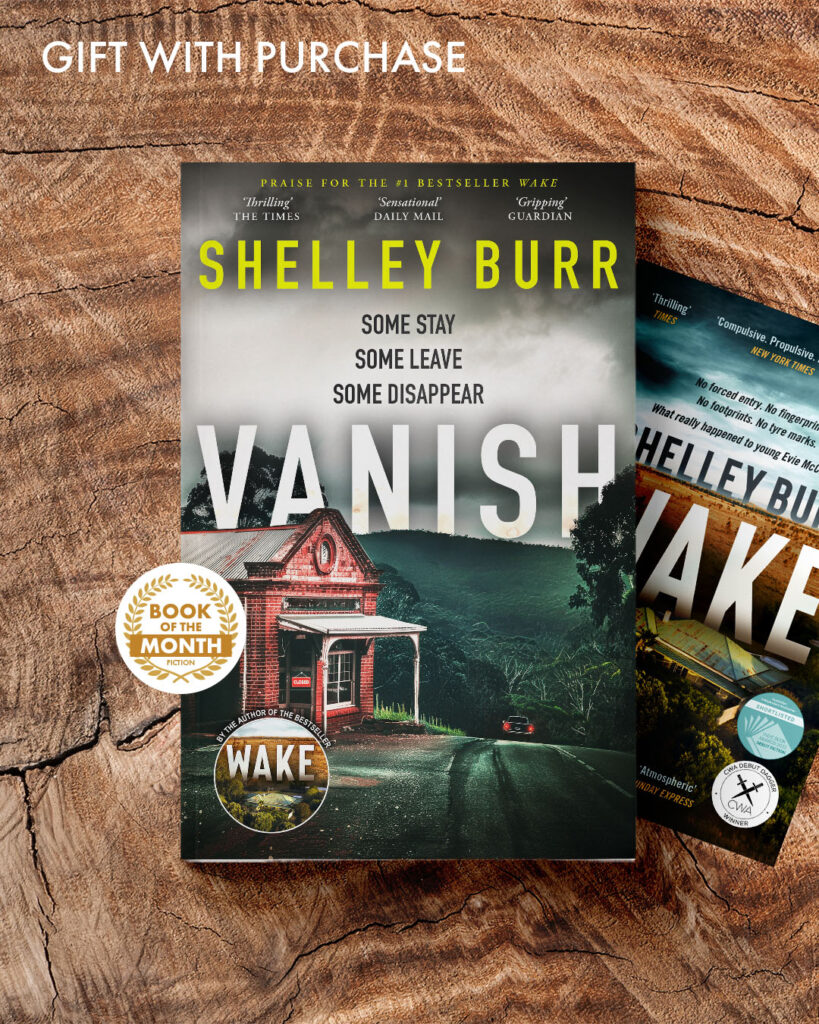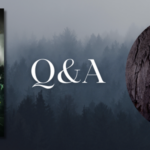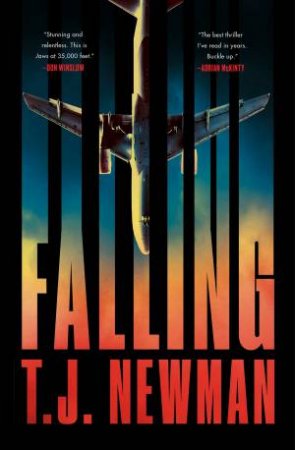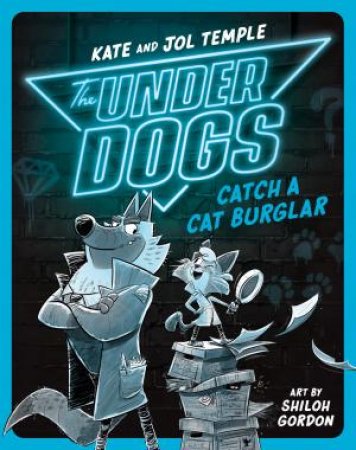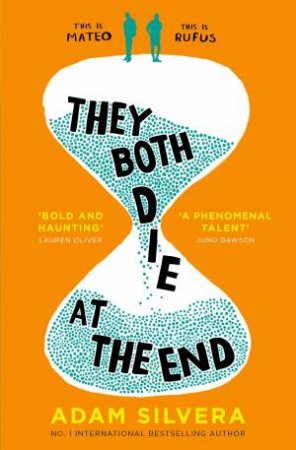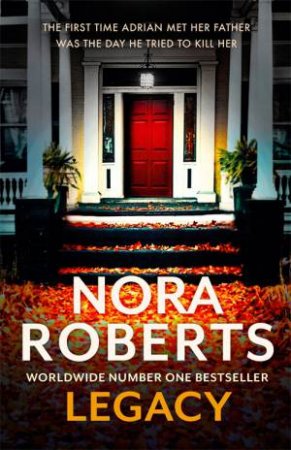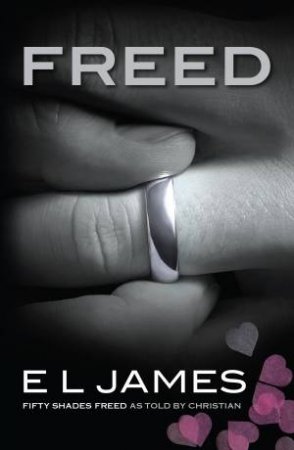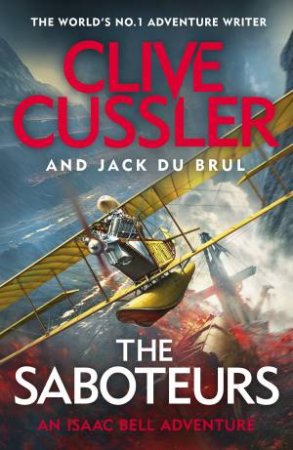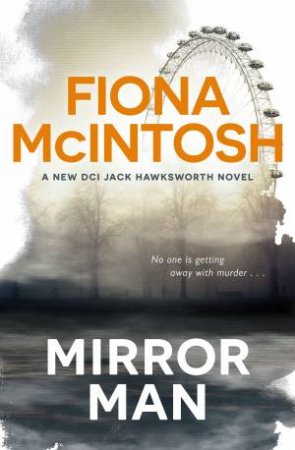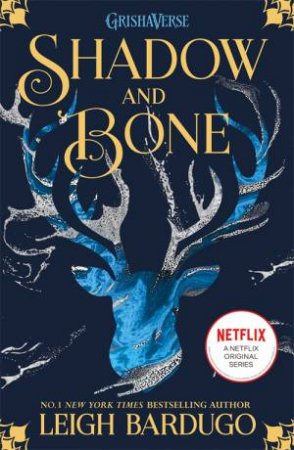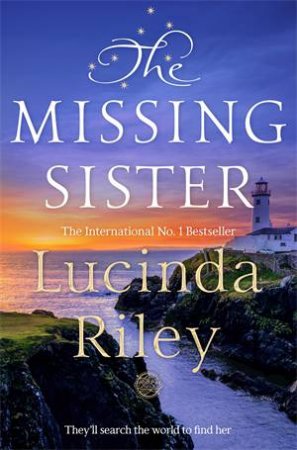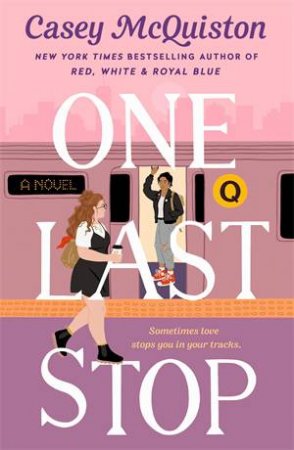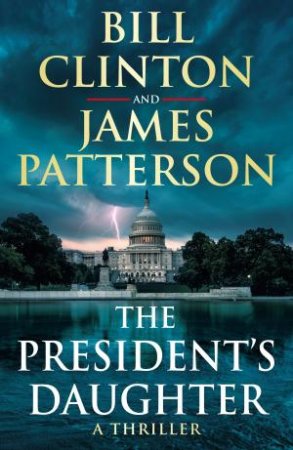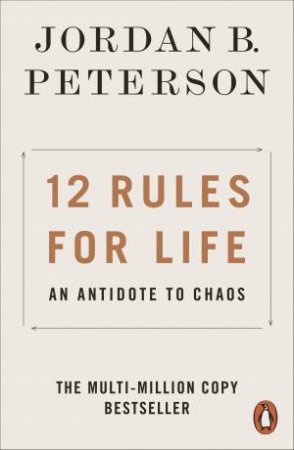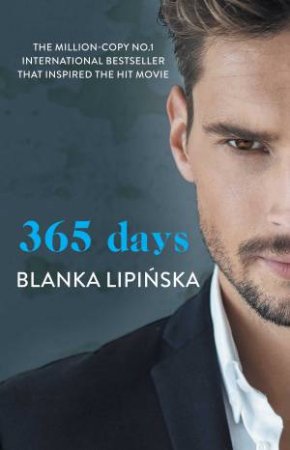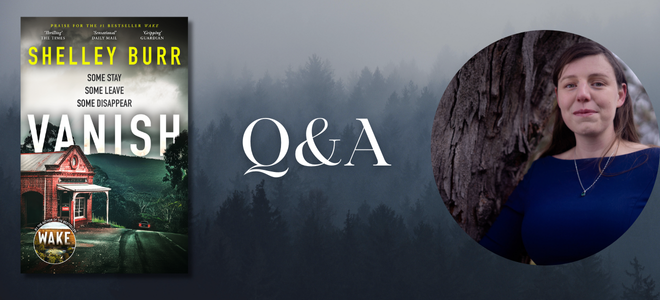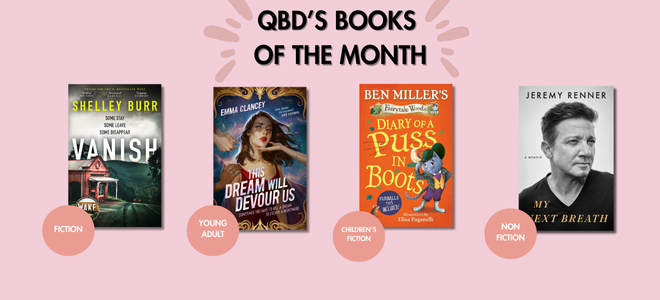Shelley Burr is our May Fiction Book of the Month author and a critically acclaimed Australian crime writer.
Her debut novel “Wake” was a bestseller and won multiple literary awards. VANISH is Shelley’s third book in the Lane Holland series and can be enjoyed as a standalone novel.
The isolated Karpathy farm is known as the place where people go to start a new life, and the same place where they are never seen again. Lane Holland’s detective career ended when he was sentenced to prison, but the disappearance of Matilda Carver still haunts him two decades later. Surprisingly, Lane finds a lead within a mysterious farm community. Is it a commune? Is it a cult? Why do some people who visit the farm vanish without a trace?
Keep reading to discover a fascinating Q&A with Shelley AND an extract from “Vanish” thank to Hachette Australia! Let’s dive in…
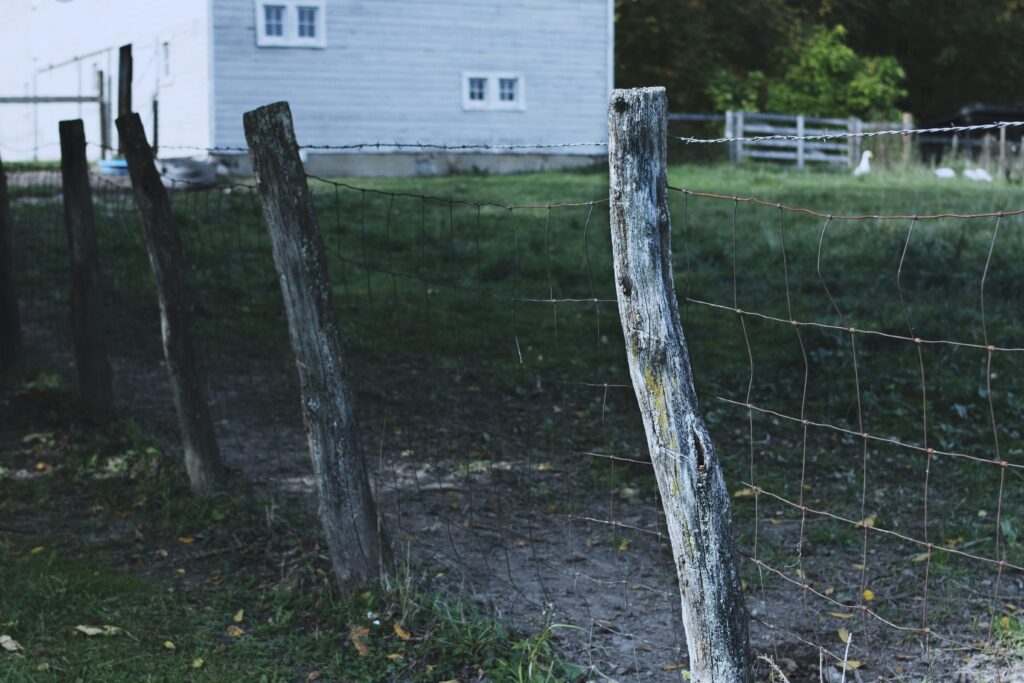
Is it a commune? Is it a cult? Is it something even more dangerous? Lane thinks he already risked it all. But when he goes undercover at the Karpathy farm, he’s going to learn that there’s always something more to lose.
Briefly tell us (spoiler free!) what readers can expect from your new novel VANISH
Lane Holland knows his crime solving career ended the day he went to prison. Even if his upcoming parole hearing goes his way, an ex-con can’t work as a private eye. But one unsolved case still haunts him — Matilda Carver, the missing daughter of his prison’s governor.
Never one to follow the rules, Lane finds a lead — a mysterious farm community, lead by the charismatic and controlling Samuel Karpathy. His farm attracts people who are lost and searching for something. People who want a more meaningful life. People who are hiding from something. People who have nowhere else to go. People who go to the farm and are never seen again.
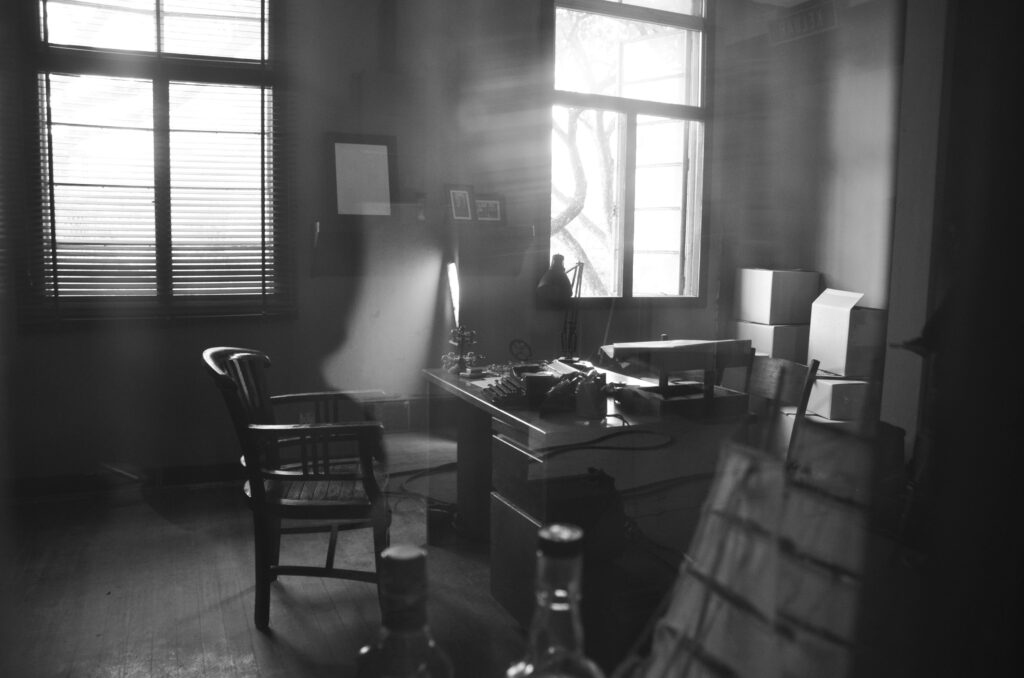
What inspired you to write crime novels? Why do you think the genre has such longevity, here and abroad?
I’ve always loved crime fiction – I love a puzzle. But I didn’t set out to be a crime fiction writer. The idea for WAKE grabbed me and wouldn’t let go, and in the course of writing it I decided that writing it as a crime fiction novel was the best way to tell the main character Mina’s story.
From there, the ideas for crime novels kept flowing, and I find writing in the genre really satisfying.
I think crime fiction novels are easy to pick up and start reading — they grab you right away with an intriguing mystery, you can follow along and try to solve the puzzle as the detective does, and you can trust that your questions will be answered by the end. It’s satisfying.

How has your protagonist, Lane Holland, changed since we first met him in your debut WAKE?
That’s a question Lane is asking himself!
The Lane Holland in WAKE was hyper focused on solving the Evelyn McCreery case, at all costs. He was going to solve it, he was going to get enough reward money to keep him and his family comfortable for the rest of their lives, and he was going to put the bad guy away forever. He was willing to destroy himself to get that solve.
The Lane in VANISH is years on from that decision. He destroyed himself, but he’s still here. He’s trying to figure out what comes next and who he wants to be.

I also love the outdoors. We live on a farm, and I’m happiest when out climbing our hills and walking through the paddocks.
I think that level of affection makes it easy to take in and remember little details, and then reproduce the feeling of being in distinctly Australian towns and landscapes.
What do you think makes your novels feel distinctly Australian?
I grew up in a split custody situation, spending school terms with my mother in Newcastle, NSW and school holidays with my father in Glenrowan, Victoria. Those towns are about eight hours apart by car, so I spent a lot of time stopped in small towns.
I love small towns, the ways they’re similar and what makes each one unique. Whenever we stop in one I’m always out snapping pictures of community halls and historic markers and what’s on display in the bakery case for later reference.

Who are some of your favourite Aussie crime writers and why?
Dinuka McKenzie. She’s a skilled writer and genuinely one of the best people I know. I love that her work is set in a regional centre, which can be a bit of a missing middle in Australian crime fiction — most books are set either in big cities or tiny towns.
Jack Heath. Jack is 100% committed to writing the most entertaining crime story he can. I always know I’m going to have a great time when I pick up one of his books.
Matthew Spencer, Kylie Orr and Sally Bothroyd. I’ve heard people complain that there isn’t enough urban crime fiction set in Australia, but these authors are doing great things in that space.
Chris Hammer. Obviously.
Jane Harper. Jane’s mysteries and wonderfully constructed, and she’s the undisputed queen of the genre. We all owe her a drink.
READ AN EXTRACT FROM VANISH
CHAPTER TEN
Lane had his pants halfway up when the door to Sweeney’s side of the cabin swung open. ‘Time to head to the office and juice up your leash,’ Sweeney said, ignoring Lane’s frantic rush to get himself properly clothed.
‘Doesn’t the battery last a week?’
‘They’re on solar here,’ Sweeney said. ‘Between the shitty weather and their system being cobbled together with duct tape and hope, the department thinks it’s too high risk. If the power goes out and your battery runs down before it comes back on, you’ll get a window of opportunity to peace out. So I get an alert as soon as you hit forty-nine per cent.’ He tapped his smartwatch. Sweeney escorted him to the admin building, grumbling under his breath about having an extra work task to do, and hooked Lane up to the charging cable. It was a little over a metre long, giving him a decent amount of freedom to move in the small office.
Lane crossed his fingers, hoping he and Sweeney weren’t about to spend an hour staring at each other in silence while the ankle bracelet charged. To his relief, once Sweeney was satisfied it was charging correctly, he headed for the door, ignoring the cheerful, ‘Goodbye,’ Lane said to his back.
Lane counted to one hundred, just in case Sweeney changed his mind and came back, before stepping forward. Moving carefully – not wanting to accidentally tug the charger loose – he tested how far he could go. The desk, the door and the filing cabinets were all within his range. First he needed to check for a camera. If there was one, it would capture him searching for it, but that would be easier to explain away than getting filmed tossing the room. Someone had left one of the headlamps lying on the edge of the desk. He picked it up and then closed the window blinds. Some light still leaked in around the edges, but it was dark enough for his needs. He looked around for any small points of light that might be a camera.
No lights. He flicked on the headlamp and moved the beam slowly around the room, searching in a grid pattern. First up high in the corners of the ceiling, then across the walls, then over the floor and under the furniture. Not all cameras had a light, but even the tiniest had a lens, and it would reflect the torchlight back at him. Nothing. Satisfied, he put the torch away and turned on the overhead light.
It occurred to him that Karpathy had showed no signs of being protective of this room. This was the second time Lane had been left alone in it, so it was unlikely there was anything sensitive within easy access. The only place Karpathy seemed protective of was the locked door leading to the shed at the other end of the building. Lane tried the computer first. He didn’t know how many guesses at the passcode it would give him before locking him out, so he decided to err on the side of caution and limit himself to three. He knew from watching Karpathy that the first two digits were 66, so he opted for the systematic approach. 6600. 6601. 6602. With one hundred possible combinations and three attempts every four days, he would manage to unlock it before his six months here were up, but there had to be a better way.
He left it, and turned instead to the filing cabinets, tugging on the drawer marked A–C. It didn’t budge. He cast his eyes around the room and found a coffee cup filled with rings of keys. He sifted through and found a pair at the bottom that were the right size and shape for filing cabinets. The key fit perfectly, and he started flipping through employee files, starting from the back. He noted there wasn’t one for Hannah Cudney, but he quickly came to one labelled Carver, Matilda. He pulled Matilda’s file out with shaking hands. He’d been starting to feel like she was a ghost, that nobody would ever admit she’d been here. But here it was: undeniable proof.
Flipping through the file, he found a handwritten application for a farmhand job, listing her experience with fruit picking and livestock handling, but no contact details for references. There was a printout of her days worked, and her hourly wage. Next was a payslip, which matched the calculation of hours worked and money earned. The payslip was dated six months after she was reported missing, and seemed to cover the entire time she had worked at the farm to that date.
There was a photocopy of a cheque made out to cash, and a bank reconciliation showing it had been cashed at an Albury bank the day after it was issued. Something had been written at the bottom of the page, but it was redacted with a black marker. He turned the paper over, hoping whoever originally wrote it had
pressed hard enough to still make it out, but was disappointed. The last page in the file chilled him. It was a printout of Matilda’s Missing Persons profile. So those on the farm had known that the police were looking for her but had done nothing to help. He replaced the file in the drawer and moved down to S–V. Alain Serling’s file was nearly identical to Matilda’s.
A handwritten application form. The time tracker, a cheque issued and bank reconciliation. His cheque was issued and cashed two months after Matilda’s, Lane saw. There were no notes, written or redacted.
There was a copy of his Missing Persons profile.
And one more document. A printed topographical map of the farm. Someone had marked it with an X.
Shelley’s fast-paced and atmospheric prose are bubbling off the page and will leave you utterly enthralled. Get your copy of “Vanish” in-store or online AND receive a FREE copy of “Wake” while stock lasts!
You can keep up-to-date with Shelley on her socials here:

